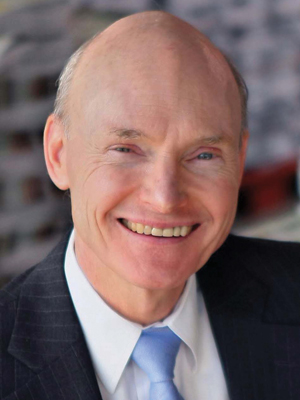I wanted to share my thoughts with you on Dylan Byers' Nov. 2 column: "How Donald Trump Changed Political Journalism," as I disagree with several of its observations and conclusions.
In his column, Byers, senior media reporter for CNNMoney and CNN Politics, argued that this year's presidential election, specifically Donald Trump's campaign, changed journalism. He wrote:
"The traditional model of 'he said, she said' journalism, in which news reports simply pit both sides of a story against one another, was thrown out the window in favor of a more aggressive journalism that sought to prioritize accuracy over balance.
"To many journalists, political scientists and media experts, this was a welcome change: It unburdened the American press from false equivalency and made them more responsible stewards of information. To critics, especially on the right side of the political spectrum, the whole endeavor laid bare the innate biases of a coastal, liberal news media."
There have been variations on this argument for the 46 years I have been in journalism. Essentially the argument is that no one can be completely objective, so you shouldn't even try. What currently is more popular is to argue that journalists should try to be fair rather than objective, as if fairness is any more easily obtainable while being objective. Byers' column uses new phrases like "false equivalency" to try to argue against being objective, but a new phrase like this just dresses up the same old argument.
Another part of the argument is that journalists should determine what is true, then give just that truth to our readers. But what is true and false is not always so obvious, and sometimes when it becomes irrefutable it can be some time in the future after new facts are known. Implicit in this argument is that journalists are smart enough to tell our readers what they need to know. A corollary is that journalists are smarter than our readers, hence it is their responsibility to determine the truth for them. One problem with that reasoning is that many of our readers may be smarter than the journalists. But regardless of whether they are smarter, our readers may have information about subjects that we as journalists may not know. So when they read our attempts to recite just the facts as we observe them, they may have some other information that provides a context that we may not be able to provide. Given a large audience, I think this will always be the case with our readership.
Another problem with this reasoning is it undermines our credibility with our readers. If we say being objective is impossible, so we are not really going to even try, then we are going to have less credibility than if we say that we know being objective is difficult and may be impossible, but we are going to try our very best to be objective. Which argument do you think engenders the most trust and credibility among our readers?
Byers' column belittles both sides by saying it is "he said, she said" journalism. It implies that if she said something about a subject that sounds reasonable and he said something about the same subject that sounds ridiculous, then we should not report the ridiculous statement since we know it isn't true. Is that really better than telling the readers about the ridiculous statement that he said? Aren't our readers smart enough to realize that the statement is ridiculous and then make their own judgment about who said it? If we do, aren't we doing a better job of reporting the facts? If someone says something, whether it is true or not, isn't it a fact that they said it?
In today's world, there are far more media outlets that seem to slant their coverage one way or the other. This erodes public confidence in media. But maybe this creates an opportunity for those media that try to be neutral and objective. Doesn't the pursuit of objectivity create more value for the media that eschew the temptation to be more subjective and reward those who try to be more objective?
Walter E. Hussman Jr. is publisher of the Arkansas Democrat-Gazette and the Chattanooga Times Free Press. He is chairman of the board of WEHCO Media, which owns both papers.

